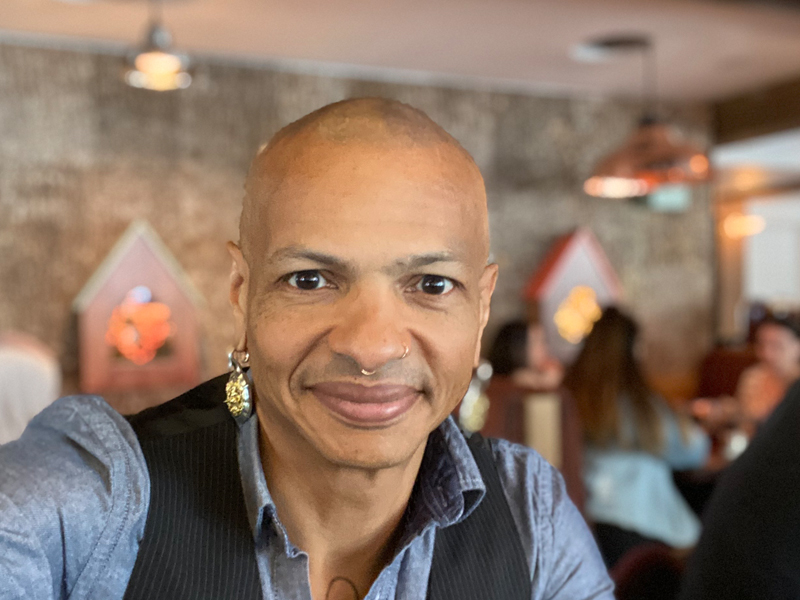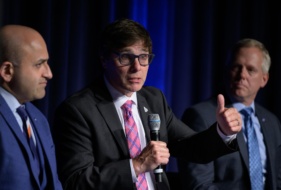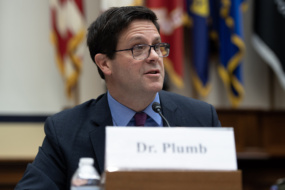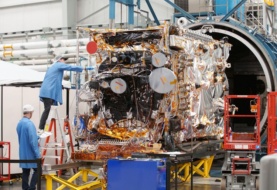Moriba Jah is an astrodynamicist, UT Austin professor, JPL alum, and chief scientific adviser of Privateer, a newly formed company that aims to be the “Waze for space.” Payload sat down with Jah recently to discuss recent events, debris, space environmentalism, Privateer, and more.
NB: This interview was edited for clarity and length.
On the ISS avoidance maneuver, is this just going to become a fact of life in low-Earth orbit?
The answer is yes, you’re going to see these maneuvers more frequently. Unfortunately, it’s more of a ‘chicken little, sky is falling’ situation than a real risk. What really dominates our perception of risk is the uncertainty. There is a lot of uncertainty. Because we are not more rigorous or realistic with uncertainty, it seems like everything could be colliding all the time.
In probability and statistics, we call that a Type 1 error, or false positive. Our lack of high-fidelity physics and reducing uncertainty leads to a lot of false positives. And so we get desensitized to these situations. Eventually, people say: ‘This is a nothing-burger and I don’t have to pay attention to it.’ That sucks. And you could probably wind up with a situation where you should have paid attention.
Are there any catalysts you’ve found that can drive more awareness of space getting over-congested?
Cultural differences can explain the behaviors of space. Intent is something you can’t measure with a sensor, and a lot of people just apply prejudice to uncertainty to make it go away. We assume everything is intentionally harmful. That doesn’t scale well. Our best way to deal with this problem is to find a way to recruit empathy across humanity. The problem won’t go away by us having more conversations about debris.
This is why I’ve tried to create a second version of myself that’s a public figure. To compel people to understand the problem, and understand that there’s detrimental impacts to our way of life if we lose this resource. Then, they can start putting pressure on elected officials to actually do something about it.
Do you think that this is a tragedy of the commons issue, and a collective action problem?
Totally. We have a complex system and an emergent behavior that is not explained. There are non-linear relationships between cause and effect. There’s no coordination or planning in how participants behave or use the resource. All these things are very clear red flags indicating that this is not long term sustainable.
I’ve had conversations with SpaceX. The volume of data about their satellites, and communicating it with others, doesn’t scale. The bottleneck is in how we use distributed data.
What are your thoughts on all the LEO constellations that are under development or being planned? Specifically, all the FCC filings we saw last week? Might that exacerbate our debris woes? [NB: This question was asked and answered in follow-up emails.]
The number of objects isn’t my biggest concern. It’s the ambiguity and uncertainty in predicting how they’ll behave that’s the biggest issue. The lack of holistic space resource management.
Do you think the onus of responsibility is on governments?
I always like hanging my hat on international laws and treaties already out there. All the responsibility falls on governments. When it comes to liabilities and damages, or authorization and providing supervision, that falls on states party to a treaty or agreement. Governments are in complete power.
It’s up to them to say: “Look, private citizens from our country can’t come together and do something unless we say yes. And if we say yes, we should all agree to a common set of practices and protocols.’ And that’s done to guarantee that we can use this resource for the long term.
Implementation of [treaty] guidelines are where I think emphasis needs to be placed. They’re not legally binding, but every country that signed on could make that national space law in their country. And enforce it.
So the most effective lever for action is governments?
Talking to governments and companies is insufficient. That’s why we need to have a grassroots campaign and talk to the general public. But space people tend to think: ‘Ah, they’re too stupid. They’re not going to get this. You need to have a PhD.’ No, you don’t.
From a technical perspective, there’s obviously no silver bullet. That said, what systems do we need to put in place to address this? How does Privateer fit into the equation?
The work that I do at UT Austin is heavily ingrained in what I call science, technology, and policy research. I’ve put my research out there, but it’s not commercialized or operationalized. That’s where Privateer comes in.
I feel like we’re in a second Renaissance. The Medici financed the greatest rebirth of art and science. I’ve been looking for my Medici equivalent, someone who believes in the vision and solving this problem. Privateer has answered that call.
We need three things to be successful: authority, resources, and ability to effect change. The resources are there. The authority exists. On ability to effect change, I am deep in the fabric of space environmentalism. All three ingredients are there with Privateer. They fully believe in the idea of space environmentalism and interconnectedness.
What do you mean by interconnectedness?
The ecosystems of land, air, and ocean are actually connected to space in some way. These are things that Alex Fielding and Steve Wozniak fully embrace. We’re like the three amigos tied at the hip in this vision.
What we want to do is what I call bespoke decision intelligence. From insurance companies to astronomers, all these different space people have needs. We want to provide information to help them make decisions.
Can you say a bit more about space environmentalism? That strikes me as a term that most folks aren’t familiar with.
I became a space environmentalist after looking at ecological unsustainability and having an inner shift. There are pockets of people on our planet that actually know what sustainability looks like. Those people are found within indigenous communities. They don’t see themselves as owners of stuff, but as stewards and custodians. These principles are the ones we should be applying in space, so that we can achieve space sustainability.
To circle back to our initial topic, could existing space assets help reduce collision risks?
We don’t have enough eyes in and on the sky. We need to aggregate all sorts of information together to come up with the best picture of what’s going on in space. There’s inconsistency right now. People with radars have an opinion, but it’s based on their type of sensor.
The truth about sensors is that they all lie. There is no true sensor. All sensors lie, each one has some bias. The best way to know that you have an accurate clock is to have hundreds of them. We need to solve the big data problem.
Privateer is aiming to be Waze for space. Waze is a participatory sensing application. Users participate and contribute information that other users take advantage of. In space, that could be: ‘Oh, there’s a piece of debris’ or ‘You might want to take this path, instead of your planned path, because there’s an obstacle.’
That’s what we want to do. We want to provide near-real-time knowledge of what’s happening in space, by combining all of these different sources of information, from the ground and space, with our own satellite constellation.




